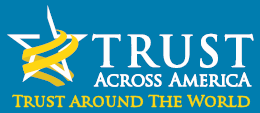This On-Purpose Minute originally aired in November 2011, when the unemployment rate was over 10%. In the years since then, not much has changed really. Supposedly, the unemployment rate is currently around 4.9%, but that statistic fails to account for many who have simply dropped out of the job market due to discouragement. Some say the effective unemployment rate is as high as 1 in 6 persons.
I regularly talk with people who are underemployed, but at least they’re in the game. Opportunity tends to create more of itself. There’s learning happening and new relationships being made. This is currency that doesn’t spend, but it can pay.
Then there are those who are involuntarily unemployed. This is heart-breaking on many levels. The fear of rejection, let alone the rejection itself, can erode confidence. This reduces their chances for future employment even more.
Aside from the loss of income and financial struggles, what I often observe in their situation is a point of view that is detrimental to their state of being now and long-term. They’ll never get the job of their life. It is like the movie Dead Poets Society, where the one young man decides that a life of just pleasing others is worse than death and others learn the lesson. Despite Robin Williams’ tragic death in real life, he provided a source of inspiration through his body of work.
Many think that a job provides a sense of security and identity. This “3-2-1” pattern, however, is a frail basis upon which to build one’s life. Instead of growing a sense of self, the shifting “foundation” speeds the cycle of being in and out of dissatisfying jobs or workplaces.
Perhaps the money is too much to quit a miserable job. The pain of change appears worse than the suffering on the job. For a few dollars more, we’ll trade our life. What a waste! Yet, I fully understand and deeply appreciate the dilemma. Money is important to function in society, to eat, to be housed, etc.
Work on You
Don’t blame the job for your state of being. Instead, bring your state of being to the job! Here’s how:
- Don’t quit your day job just because I struck a nerve with you! These seemingly stalled or downward career spirals can be broken.
- Let my 1-2-3 approach in this OP Minute settle in your spirit. Even if you think it is impractical, do you find yourself wishing you could actually do this? Do you imagine what’s really possible if you pursued your passion?
- Take action. Be in circulation. Make appointments for visits over coffee, not lunch. Coffee is cheaper and you’ll not get fat.
- Develop a list of ten to twenty friends or business colleagues with whom you keep in regular contact. Describe in detail what you’re looking for. Gain their agreement to keep their eyes and ears open for you. Have them make warm introductions to your target companies.
Investing time to think, sort, and pray about who you are and how you can contribute to the well-being of an employer and company is smart thinking.
The job of your life is to live your life on-purpose — to be as fully YOU as God intended and designed you to be. It is the only job you can’t delegate so get to it now.
How Do I Find The Job of My Life?
The On-Purpose Person provides a simple and affordable roadmap for discerning who you are before you decide what to do.
Recently, I was speaking to a group of women who worked at a local college. Their Wellness Committee recognized the connection between purpose and health and booked me to speak the faculty and staff (not students). From the audience, two small groups formed who were systematically going through The On-Purpose Person. After completing the study, I was invited back on campus for their last “Gathering” to discuss the experience. One woman decided to make a job change and was starting a new higher paying, more rewarding job in 10 days. One decided she needs to start a job search. Others, however, reaffirmed that they were exactly where they were most suited to be. They saw the meaning of their lives and those they served with a fresh and positive point of view.
Not bad! Not bad at all. So the point is, use The On-Purpose Person to plan your life and then your work. Remember all work is neutral and that it is our job to bring meaning to it.
Be On-Purpose!
Kevin




